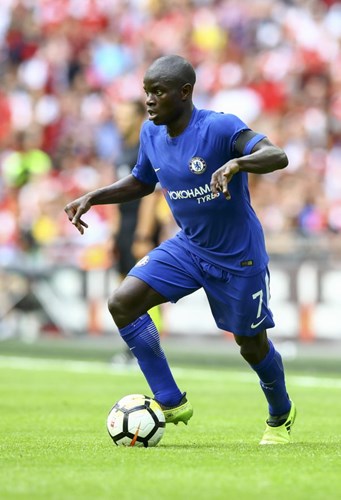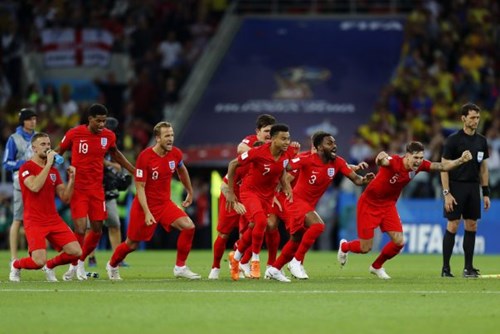There are undoubtedly more important issues surrounding Britain’s exit from the European Union than that of football clubs being able to attract players, but it’s just one of a number of key issues the football and sports industry is facing ahead of the UK’s departure from the bloc – whether this month or in the future...
Whether we see a hard Brexit, soft Brexit or a red, white and blue Brexit, the free movement of players between EU states is on the minds of club owners throughout the UK. There is also the issue of the viability of staging major tournaments, as well as how it will affect young athletes and players currently exempt from transfer rules. Here, Future Sport delves into some of those issues and how they may or may not be rectified…
Free movement of players
Reports suggest that the Premier League is wary of the impact of Brexit and is seeking to avoid new regulations on signing European players. While this will be the ideal outcome for owners, managers and fans, the reality is a little more complex. Currently, clubs can sign players without work permits from within the European Economic Area (EEA). Players from outside the EEA, however, must meet strict criteria to gain a work permit, in some instances having to have played up to 75% of their nations’ international games to qualify. While the likes of the Premier League, EFL and The FA wait for the outcome of the government’s anticipated Brexit deal, they insist that it’s vital for clubs to be able to continue to acquire players from the EU with the freedom they currently enjoy. A striking example of how a post-Brexit Premier League could be affected is that of 2016 winners N’Golo Kante and Riyad Mahrez. Both were born in France, but at the time of their transfers to Leicester City hadn’t played the required number of games for their respective nations, so the likelihood of them being granted work permits to play in England would have been highly doubtful. It’s talent like this that makes the Premier League one of the UK’s greatest exports, but the question remains – why should football clubs be exempt from the rules instead of, say, the NHS?

The Premier League could be starved of talent like N’Golo Kante.
Impact on younger athletes and small clubs
Speaking to the People’s Vote campaign this year, Burnley chairman Mike Garlick warned that Brexit “threatens to make the widening inequality gap in our top division even worse”, adding that the “destructive path being pursued by the government” threatens to damage clubs around the UK. The worry from clubs outside of the Premier League elite is that should free movement become a thing of the past, a smaller talent pool to buy from will be dominated by teams with a bigger budget and loftier ambitions. The UK’s exit from the EU would mean that the Article 19 exemptions of the FIFA Regulations – access to players under the age of 18 – would no longer apply to British clubs. Without an alternative agreement arranged, a hard Brexit would mean transfers involving younger players like of Hector Bellerin, Nathan Ake and Andreas Christensen would no longer be feasible. Stoke City chairman Peter Coates, who backed the Remain campaign in 2016, has said previously: “If this (the Brexit deal) goes badly, it will be places like Stoke that suffer the most.” While some will say this is the perfect opportunity to develop home-grown talent, others fear for the immediate future of their club.
No World Cup in 2030?
A UK-wide bid to host the FIFA World Cup in 2030 has been discussed and is believed to be encouraged by FIFA, but could Brexit actually affect Britain’s ability to host major sporting tournaments? Higher costs for athlete visas, staff shortages due to rigorous immigration rules and increased wages for staff due to those shortages could well impact the profit margins for federations and governing bodies looking to host their showpiece events. Angus Bujalski from the Rugby Football Union has previously said the number of non-UK EU match-day staff at Twickenham is around 25%, and that he expects wages after the UK leaves the EU to increase due to a staff shortage, so it’s easy to imagine other major venues suffering a similar fate. Then there’s the ease of visiting the UK for travelling fans who often make major sporting occasions the memorable events they become. The fear among some is that the UK will become a less attractive place to host an event and a less desirable country for visitors to watch sport in.

Scenes like this might not be coming to the UK in 2030
Kolpak ruling
Cricket and rugby clubs are waiting anxiously to see how Brexit will affect the Kolpak ruling. Named after Slovakian handball player Maros Kolpak, the rule allows citizens from a country that is part of the European Union Association Agreement to have the same rights as EU citizens. Currently, Rugby Football Union rules state a club can’t play more than two overseas players in a match, and English domestic cricket allows up to two overseas players in a Twenty20 game and one in a County Championship fixture. However, an athlete from the EU or a ‘Kolpak’ state doesn’t count as foreign. Similarly, the Cotonou Agreement – a treaty between the EU and African, Caribbean and Pacific Group of States – allows athletes to participate as ‘non-foreigners’ and have the same rights to freedom of movement and work as an EU national. If these players are to be treated as other foreign players post-Brexit, some say this will give more opportunities to young British athletes and thus have a beneficial impact on national teams across the UK. But there is also a viable argument to say great overseas talent helps to make British leagues some of the most competitive and exciting in the world.

Cricket and rugby clubs are waiting anxiously to see how Brexit will affect the Kolpak ruling
The Undiscovered Country
These are all ifs, buts and maybes, just like the final Brexit deal itself. The reality is that despite all the conjecture from the experts, no one really knows what the UK’s future outside of the EU will look like, and that’s especially true about the sports industry. The uncertainty has already shown how some football clubs are strategically positioning themselves in preparation for March 2019. Brighton & Hove Albion recently announced they had recruited FA Technical Director Dan Ashworth, credited for significant youth development and success at an international level. The club’s CEO explained the driver for the appointment: “[w]ith Brexit coming up, we really need to change the way we do things, we need to be proactive, we need to prepare as we are likely to need to develop more local players given the restrictions on signing EU players”.
Notwithstanding an increased emphasis on youth development, a worst case scenario following a hard Brexit could involve a significant change in the quality of players available to clubs, meaning a Premier League with far less talent on show, which in turn would see worldwide television audiences dwindle, As broadcasters pull out of their billion-pound deals and money falls out of the league, the pool of talent would decrease further and the investment filtering down to grassroots level would further diminish. Worsening facilities for youngsters could then see them turn away from sport for good. This is of course venturing into “Project Fear” territory, but the fact remains that the UK’s sporting landscape could look very different in the years to come should a Brexit deal be agreed that doesn’t have sports’ best interests at heart. Like the rest of the UK, the football and sports industry is holding its breath.
















